2013: America's Gayest Year
From wedding bells to wedding cakes, gay issues were always on the cultural radar
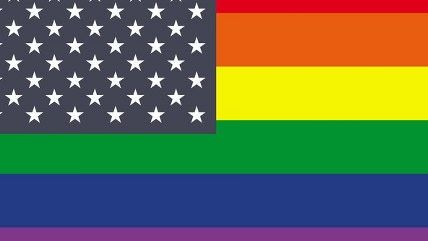
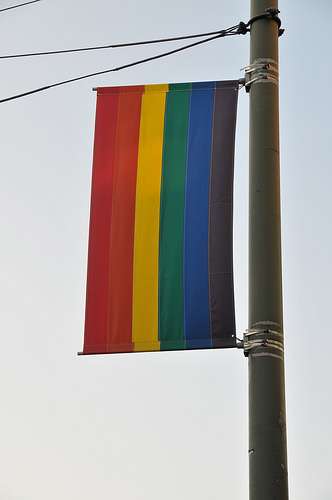
There's never been a better, safer time to be non-heterosexual in America. Sure, there are still regular reports of anti-gay violence and bullying. Sure, there are plenty of people who still believe practicing homosexuality is incompatible with God's plan. Sure, there are still people who still believe that gay sex practices are physically harmful or weird or icky or … well, whatever. And outside of America's borders, some other countries still have some very troubling attitudes toward gays.
But 2013 made it abundantly clear: American culture, largely, is down with the gays. This year made it clear that the war is over. American society will openly accommodate the homosexuality that has been part of its community all along. Acceptance has increased at what feels like an exponential rate (especially for anybody born prior to the 1980s).
Though several cultural and legal precedents from previous years helped get the country here, 2013 can arguably be defined as a tipping point. Here's a look at how "It Got Better" for gays in America this year. While some developments improve liberty for all, certain other trends present First Amendment challenges, a reminder that many folks don't discern the difference between government-mandated discrimination and private expressions of freedom of association.
The Wedding Bells Don't Stop Ringing
The amazing expansion of same-sex marriage recognition actually began in November 2012. For the first time in American history, the pro-gay side won ballot initiatives to expand marriage recognition to same-sex couples. In Washington state, Maine and Maryland, voters gave the thumbs up for gay marriage.
So, even right as 2013 began, gay marriage recognition was expanding. Maryland's law took effect on New Year's Day, and the mayor of Baltimore married the first couple at 12:30 in the morning.
The wedding party continued across the country. In 2013, Rhode Island, Delaware, Minnesota, New Jersey, Hawaii, New Mexico, and Utah all joined the list of states recognizing gay marriages, some through legislative action, some through judicial rulings. California began recognizing same-sex marriages again after a Supreme Court decision denied standing to proponents of an anti-gay ballot initiative that passed, bouncing it back to courts that had declared the law unconstitutional.
As 2013 comes to a close, there are now 18 states (and the District of Columbia) recognizing same-sex marriage.
On the federal level, a divided Supreme Court ruled in June that the part of the Defense of Marriage Act that forbid the federal government from acknowledging legal same-sex marriages was unconstitutional. The decision alters the rules for federal taxes and benefits for scores of partnered gay citizens, both in the private realm and among government employees and the military.
As same-sex marriage recognition continues spreading, now would be a good time for libertarian-leaning policymakers and politicians to start looking at what federal policies, privileges and benefits are tied to marital status and start questioning why that's the case and whether they can be changed.
Next: Closets are for clothes
Everybody's Gay and Nobody Cares
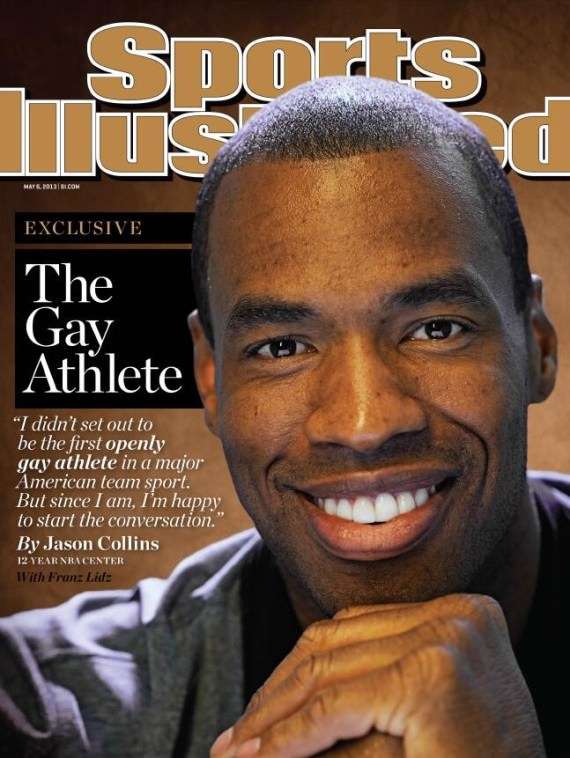
In 2013, the closet turned into a clown car where celebrities (of various degrees of famousness) stumbled out on regular intervals, often to the shrugs of the populace. Did you know Jodie Foster was gay? Yeah, probably, but she finally formally came out in 2013, as did actors like that guy from Prison Break and that girl from The Cosby Show. In probably the biggest indicator that coming out of the closet lacks the cultural punch it used to, as 2013 came to a close, Olympic figure skater Brian Boitano, after years of ice-dancing around the subject and being named as part of America's delegation to the Sochi games, also came out as gay and nobody even noticed.
But while a gay figure skater isn't exactly shattering any barriers, more and more attention is being paid to the world of sports. Not the women, of course. There have been openly gay female athletes for ages. More male athletes have started finding their way out of the closet, though America is still waiting for a big name. Getting the most attention this year was probably Jason Collins, an NBA player who was approaching the end of his professional career and came out of the closet in April. He's a free agent, though, and while he hasn't retired, he hasn't scored a contract to play for any teams. We now also have openly gay professional soccer players, boxers, and even pro wrestlers. Will 2014 be the year that an actively competing football, baseball, or basketball player comes out? Polls indicate Americans would be just fine with the news. It's a significant cultural shift.
Next: Transgender issues come into their own
Whose Gender Is It Anyway?
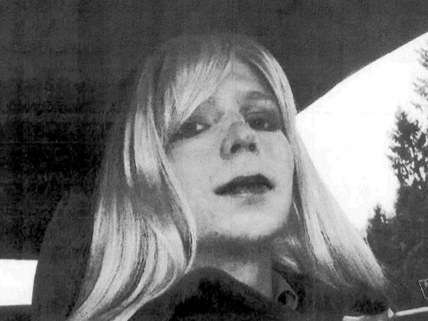
Transgender people have been part of the gay community — such as it is — forming the "T" in LGBT. At times it could be an uncomfortable fit. Sexual orientation and gender identity are not necessarily related. The relationship was more a matter of a shared connection from defying cultural norms about sex and gender and a shared goal of eliminated discrimination (and also, for quite a long time, the heterosexual public didn't really differentiate anyway).
There's a problem, though, that sometimes the goals don't always match up well. Eliminating the Don't Ask, Don't Tell policy in the military, for example, didn't mean as much for transgender people as it did for gays. And while transgender people will benefit from these new marriage laws (in the sense that they don't have to fight with the state over their gender), they have their own cultural fights to wage separate from gays, lesbians, and bisexuals.
The good news for transgender people is that their own issues are getting attention outside of the gay community and they are seeing their own progress. In California, a new law allows transgender students to present their gender identity as they see fit and choose which facilities and sports to play based on their own decisions. The law has caused a bit of a cultural backlash, but that it passed in the first place (even accounting for California's Democratic legislature) is a sign of change. Polls show increasing support for outlawing employment discrimination on the bases of gender identity, and more than half of Fortune 500 companies have policies against job discrimination. It's a full 30 percentage points below those who have policies against job discrimination on the basis of sexual orientation, but it's important to note the progress, not just the gap.
This year also saw a household name declare herself as transgender. Whistleblower/leaker (depending on how you feel about the case) Pvt. Bradley Manning, after conviction for (among other acts) providing classified documents to WikiLeaks about the Iraq War, declared a name change to Chelsea Manning and a desire to undergo hormone therapy and live as a woman. Manning's gender identity issues were known to those who followed the case closely, but 2013 marked the year where she announced her intent to live as a woman.
Next: Public discrimination vs. Private discrimination
The 'Right' to Pretty Pictures and a Wedding Cake
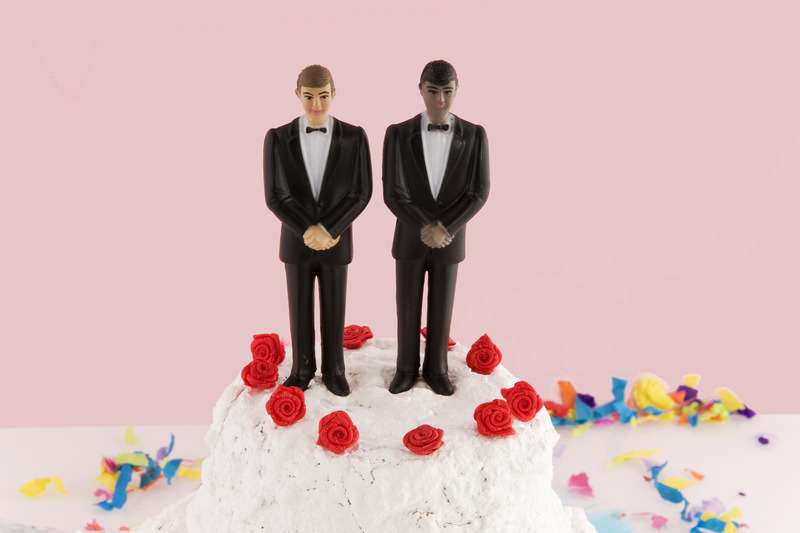
Libertarians are quick to differentiate between discrimination created and enforced by the law or government regulation and discrimination that results from individual, private choices over who to freely associate with. Non-libertarians, though, sometimes don't make this distinction.
Court cases this year challenged the right of private businesses to choose their customers. Is photographing a wedding or preparing a wedding cake for a gay couple a form of speech? Can businesses who don't support gay couples decline to provide their services or goods? Fundamentally, it shouldn't matter whether it's a form of speech or not, but "public accommodations" laws mandate that businesses cannot discriminate against certain select classes.
In states like Colorado and New Mexico, whether bakers and photographers can decline to do business with gay couples has become a heated debate. The states are ruling against the businesses. In New Mexico, a wedding photography business has asked the Supreme Court to hear their case, arguing that requiring them to photograph a wedding they do not support is a violation of their freedom of speech.
Also revived in 2013 was the Employment Non-Discrimination Act (ENDA), which adds the LGBT package to federal employment non-discrimination laws. It passed the Democratically-controlled Senate, but probably can't get much of anywhere in the House.
Public polling suggests that Americans support ENDA (even in red states) but also support the right of bakers and photographers to refuse to serve weddings. The lesson here is that Americans may see protection from work discrimination as a right but don't see the luxury elements of a wedding as a "public accommodation."
Next: Well, at least we're not in Russia, or India, or Uganda, or …
Some Countries Hurtle Backward on Gay Issues
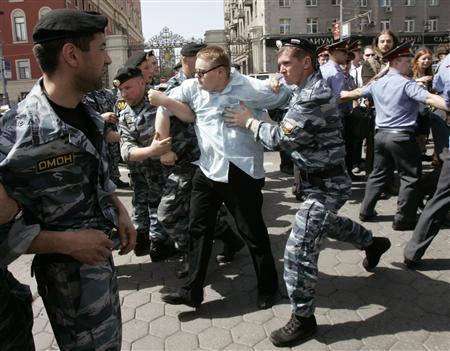
Gays in Russia are likely looking at America's rapidly changing culture with envy. Their country is moving in the opposite direction. Russian nationalists, the Russian Orthodox Church, and the government have decided to make the country's gay community a cultural scapegoat, outlawing adoptions by gay couples (or anybody living in a country that recognizes same-sex marriage) and implementing harsh censorship laws that make it nigh impossible to publicly advocate for gay issues. Gays in Russia now face violent attacks. Western countries have condemned Russia's behavior. While efforts to call for a boycott of the Sochi Olympics have failed, many heads of state are declining to attend. President Barack Obama thumbed his nose at the country's awful behavior by sending openly gay athletes (such as Billie Jean King) as America's delegation.
India faced a significant setback as well, as the country's Supreme Court ruled that an anti-sodomy law struck down in 2009 is still valid, recriminalizing gay sex in one of the world's most populous countries.
And Uganda passed a law threatening punishments, up to life imprisonment, for those who engage in gay sex — and even for those who simply provide support for homosexuals.
It's important to note, though, that activists aren't taking these retrograde moves lying down. Despite cultural conservatism in Russia and India, significant amounts of media attention and criticism are being directed at these choices in a way that would have been unthinkable just a decade ago. Social media tools have allowed activists to connect in a way they never have before. Gays in less free countries don't have to feel as alone or isolated as they did before, and international connections are diminishing the ability to implement and maintain oppressive anti-gay regulations.
